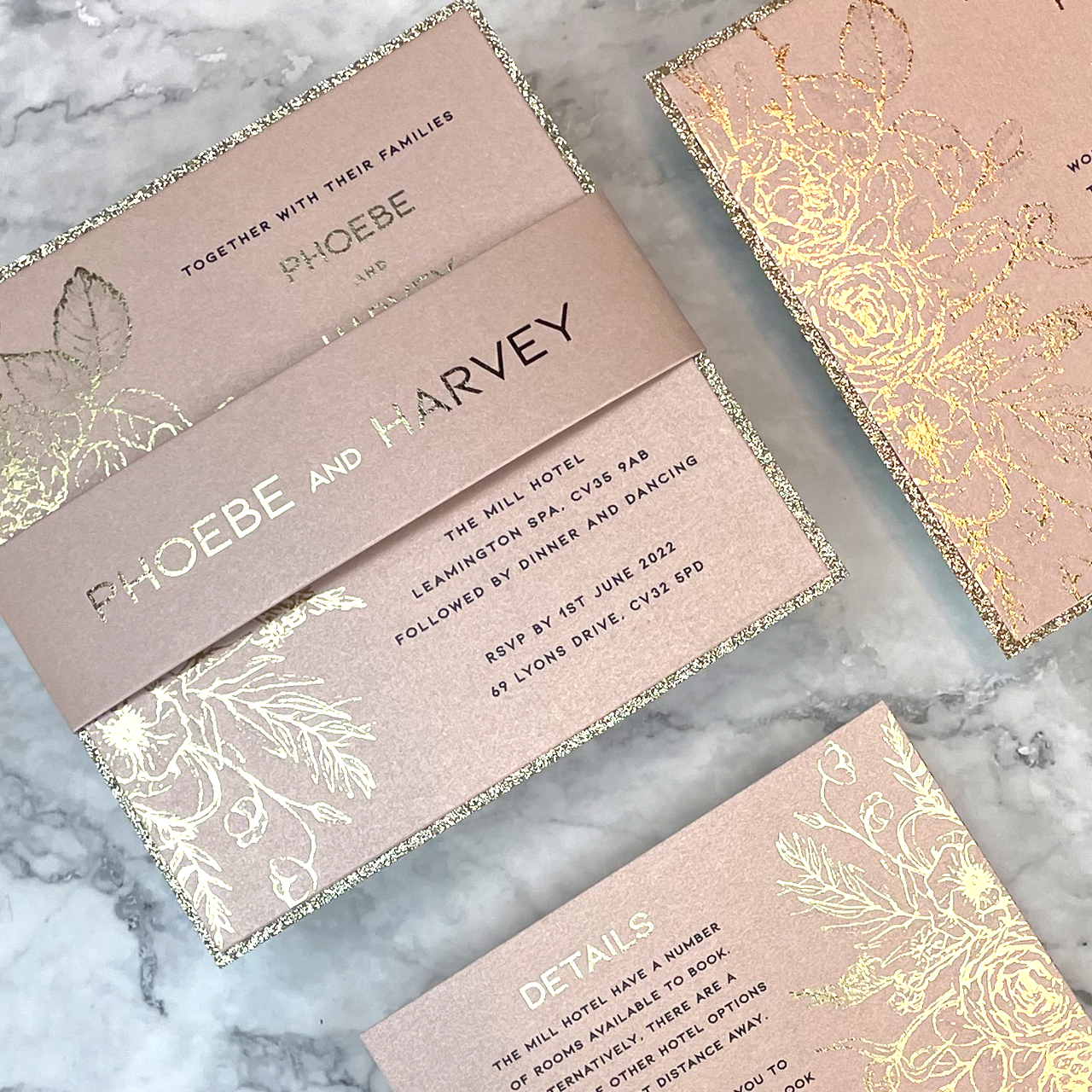It’s so important to be specific on your wedding invitations. Let me tell you a true story about a friend of mine…
My friend sent out her wedding invitations in plenty of time, and started receiving replies from family and friends.
Receiving replies is always enjoyable…
Until you realise that writing Jane, Dave and family was a huge mistake. You see, Jane and Dave replied that they’d love to attend – and they’d be bringing 13 of their family members with them! We can laugh about this now, and speculate as to how anyone could think it’s reasonable to bring 13 other people to someone’s wedding – but it’s worth mentioning here because unless I’d seen it first-hand, I wouldn’t have believed that anyone would do such a thing!
Which is why I feel I should share my friend’s tale of woe with you. Learn from her experience and make sure you put all the guests names either on the invitation or addressed on the envelope.
So, what else can you do to make sure your day goes smoothly, and to make life easier for your guests? Well, there are no hard and fast rules, but there are few things to keep in mind.
Who sends the invitations?
Traditionally, the bride’s parents send the invitations – especially if they’re footing the largest part of the bill. If both sets of parents are contributing, you could consider sending it from both families. If you’re hosting the wedding yourselves, as many couples do these days, it’s fine to send the invitations from you and your fiancé. I’ve put together a list of formal and informal messages for you to use as inspiration – click here to take a look.
When should we send the invitations?
Ideally, you’ll give your guests plenty of notice, etiquette is around 14-16 weeks before the big day. Allow extra time if you’re planning a wedding abroad, or if you’ve decided on a bank holiday weekend or a date very close to Christmas or New Year. Save-the-date cards are a great way of giving guests advance notice, and you can send those out six to eight months in advance.
When should the RSVP deadline be?
Usually, the happy couple can expect replies about 8-10 weeks before the wedding. That’s perfectly reasonable. Ask your reception venue when they need final numbers for the catering – that will give you an idea of when you need replies by – but make sure you allow plenty of time to organise final numbers for place cards, seating plans, orders of service, favours, and all the other bits and pieces you might need. Remember to put an RSVP date on your invitations – you’d be amazed how many people forget to reply!
I don’t want to invite children – what should I do?
Make sure you address the invitation to your invited guests only and be clear in your communication if children aren’t invited. If this affects close family / friends a handwritten note explaining that as much as you’d like to, you’re unable to invite children because there’s not enough space, or the budget didn’t stretch to it would be a nice touch.
How long should I leave it if guests don’t RSVP?
I’d suggest leaving about a week, then sending a gentle reminder. Don’t take non-replies personally – people who haven’t organised a wedding often don’t understand the importance of responding on time.
When should I order my invitations?
If you’re making your own invitations, find out how long your supplier will take to deliver – then make sure you have enough time to put them together. If you’re short on time, ask your bridesmaids or family to give you a hand over a glass of wine. It’s a good idea to start thinking about designs a good 6-12 months before the big day. If you’re ordering handmade invitations, suppliers often need six to eight weeks’ notice, as popular designers may well get booked up several months in advance.
At Pure Invitation, our delivery times range from 4 days to 15 days – depending whether you’re ordering DIY kits or we’re hand-making them for you.
Love Carol x


